Pinkerton’s Distillery
Lucas Pinkerton was 19 when he brewed beer for the first time. Pinkerton could buy grain and yeast and a fellow Texas Tech student taught him how to brew 50 beers for about 20 bucks. He was hooked.
“I love making booze. It’s a passion of mine,” Pinkerton said.
Especially rum.
“I made some in the garage, and I don’t advise doing that because it’s very illegal – until you get a permit,” he said about his first effort.
He later got on the right side of the law. The business that bears his name, Pinkerton’s, is the only legal distillery within 100 miles of Lubbock – except for a bottling company with a distillery license in Tulia.
Pinkerton makes five products – two kinds of rum and three kinds of vodka. His work has been nationally acclaimed.
He’s also considering a new facility that can better host the public – adding to Lubbock’s growing reputation for respected wine and beer making.
Getting started
“There were some difficulties at 19 getting beer. You know how that goes,” Pinkerton said.
A friend and fellow Tech student got him into brewing.
“Then, I was like, ‘I want to try to do stuff on my own.’ … I faced a few hard lessons,” Pinkerton said.
He should have listened to his friend more, he said. His skills evolved, admitting there was a lot of trial and error.
“I take notes on them – you know – what I did and how I did it,” Pinkerton said. “I would definitely figure out where I went wrong, or just scrap the recipe altogether. But you always make a million mistakes before you get something right. Distillation piqued my curiosity, and I fell in love with it,” Pinkerton said.
He graduated with a business degree in 2014.
“We started here in 2015. I started with rum because I love rum. After we made some rums, we got into the vodkas,” Pinkerton said.
Still Betsy
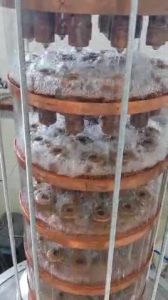
The still in Pinkerton’s Distillery has a name – Betsy.
Betsy boasts two columns – one with copper trays and one with stainless steel.
“Yes, I built it. I built all the copper parts and pieces in that column,” Pinkerton said. “I designed this stuff in here. I didn’t actually build these little parts and pieces. They were machined. But they’re my design.”
Pinkerton explains it’s a lot like mother nature picking up water out of the ocean and then making it rain. The water cools way up high in the sky and then falls back down as raindrops. Betsy picks up the water and ethanol as a vapor. When they cool, they fall back down as drops but separately.
When Betsy is cooking, the columns look like layers and layers of boiling water.
Future plans
“I can make bourbon with this still quite easily. I built it that way so that I could do those products. We’ve got the recipe for the bourbon down. We just haven’t started production on that yet,” Pinkerton said.
He’s got thoughts about making brandy too, along with different vodka flavors. He’s working on a second still and he wouldn’t mind finding another location.
“I’m kind of getting cramped. We do want to expand into another location that’s more suitable for what we’re doing. The laws have changed a lot recently on what we can do with the distillery, and we want to take advantage of that,” he said.
What does that mean?
“We kind of want to make a spot to go have a good time. … Just make it cool atmosphere for people to come hang out and have some cocktails and enjoy themselves.” he said.
A bigger tasting room would be nice.
The Texas Alcoholic Beverage Commission website said, “Distilleries can serve drinks or give samples to customers …”
A distiller can sell up to 3,000 gallons annually in its tasting room. Above that, a distiller can also sell bottles (to-go) up to 3,500 gallons annually, according to state law. Each customer is limited to two bottles per month.
Slideshow: Pinkerton’s Distillery
Safety first
One of the obstacles to moving is safety.
“Distillation is dangerous. Anything over 100 proof is flammable. So, you do have to take a lot of precautions, and you don’t want to smoke inside the building,” Pinkerton said.
Moving into the city from his current location at 8901 Highway 87 means finding a properly zoned site.
“I wouldn’t classify it as a problem. It’s just a safety measure,” Pinkerton said. “It’s something to work with, not against.”
Lubbock zoning ordinances only allow distilleries in heavy industrial areas.
Influence of wood
“No two trees are created equal,” Pinkerton said. That means nothing for vodka. It means everything for his plans to make bourbon and brandy.
Bourbon needs at least two years of aging.
“If you have barrels, you have to wait until you think they’re done,” Pinkerton said. “Otherwise, they’ll continue to change in the barrel.”
“Barrel ‘A’ and barrel ‘B’ on the same distillation will come out different,” he said. “It’s up to the distiller to either just blend the whole batch together and say, ‘It is what it is,’ or to blend them in a way that creates their flavor profile.”
While vodka isn’t influenced by wood, it has different issues.
“Vodka – you want it to be flavorless and odorless. That’s the whole point. … But you can’t get rid of the little nuance of flavor of what you made it out of. It’s just impossible. So, I try to make the smoothest one I can possibly make,” he said.
“Each yeast strand during the fermentation can make it taste different,” he said. “Molasses can be thick, but then your yeast can’t handle too much alcohol. It can only handle so much before it dies out.”
“It’s a fungus that eats sugar and makes alcohol. It’s biology.”
And tap water has fluoride and chlorine.
“You got to learn a little water chemistry with it,” Pinkerton explained.
Double gold
Pinkerton’s biggest accolades came from the New York International Spirits Competition. He took Double Gold in 2020 for his Coconut Rum.
His Premium Vodka took both Double Gold and Texas Vodka of the Year. His Burn Vodka took Bronze.
“With the vodka, there were 30 countries and 1,200 liquors at that competition,” Pinkerton said. “There’s only one best in show and I missed it by … not even a whole point.”
“There’s crafting it and loving it – trying to make the best thing you can. And then there’s commercial – how much can we sell? How far can we stretch this with every penny to make the best dollar or the most money out of it? And you can taste that,” Pinkerton said.
“I craft it – take time and craft it.”
“I’ve had some people from the Dominican Republic come in and say it tastes like home,” Pinkerton said of his rum. He makes both platinum and coconut.
There are other awards.
Related Story: Which beer goes best with chicken fried steak? We ask ‘beer evangelists’ in Lubbock
Making Lubbock better, more fun
John Osborne, president and CEO of the Lubbock Economic Development Alliance, said Lubbock was not known for alcohol at all 50 years ago. Clinton “Doc” McPherson – followed by his son Kim – changed that by growing grapes and producing wine in Lubbock that could compete with California and France.
The beer breweries came later but also compete well on a national level.
“I think what we’re seeing in Lubbock right now is a clustering of high-quality, award-winning adult beverages that are just really fun to enjoy,” Osborne said. “It makes for a fantastic quality life for our community. It’s making it to where young people want to remain in our community.”
Pinkerton agreed, “There’s some really good brewers and winemakers in this town, I mean, really good.”
“People brewing the beer and making the wine are top notch,” Pinkerton said. “I’m friends with some of them. I do kind of keep tabs on what’s going on a little bit.”
Osborne said, “Lubbock is starting to see that there’s a desire to produce some really good quality spirits, and the Pinkertons have done a great job of trying to figure out what that recipe looks like.”
Locally supported, Texas made
Pinkerton said liquor cannot be sold in grocery stores. But there are places to get it.
“We do get some preference on being local and people like to support local,” he said. “Spec’s and Docs… I hate to start naming a bunch of names because I can’t remember half of them.”
Pinkerton uses Texas-made ingredients where he can. But his supplier for Texas-grown molasses just closed. He’s possibly looking at Louisiana molasses for the future. That impacts the rum.
But the vodka is still Texas-made through and through.
“Our vodkas start with corn grown here in the Panhandle,” Pinkerton said.
Comment, react or share on our Facebook page.
Coming soon, we will offer a weekly newsletter to highlight our work. Use the form below so you don’t miss a thing.

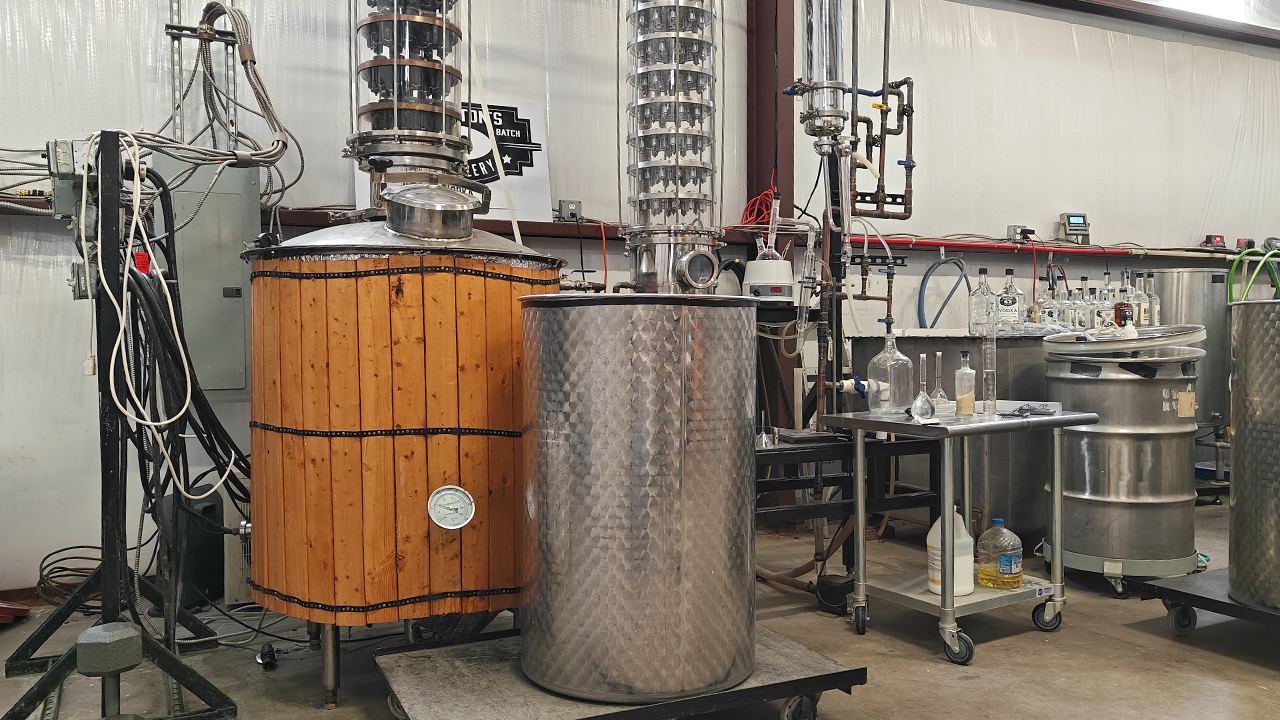
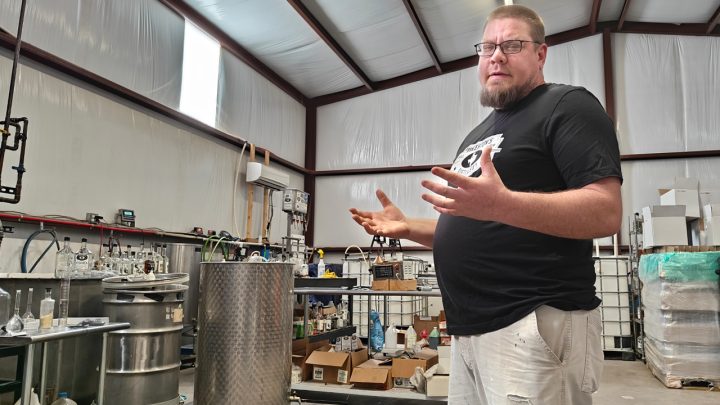
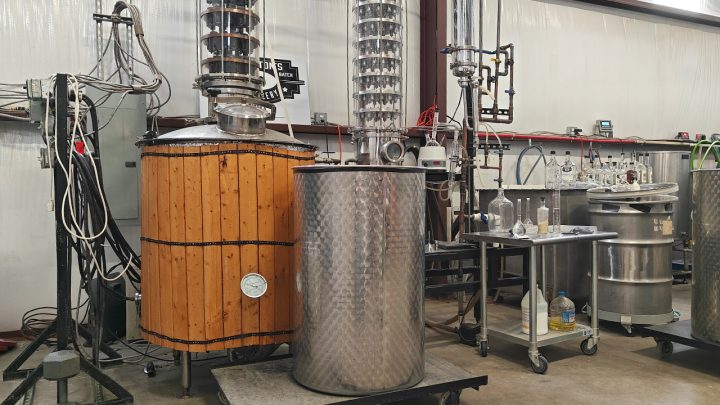
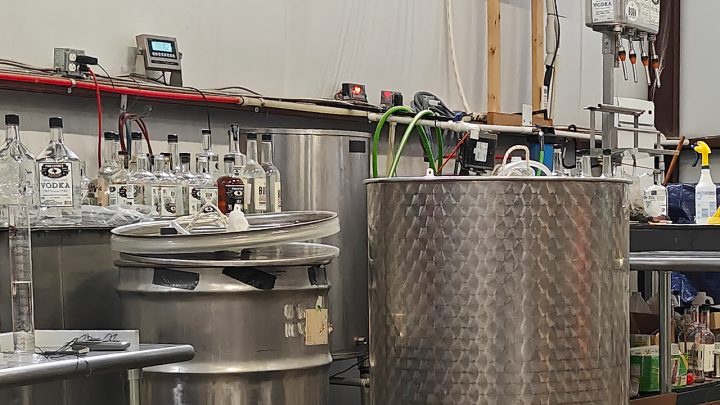
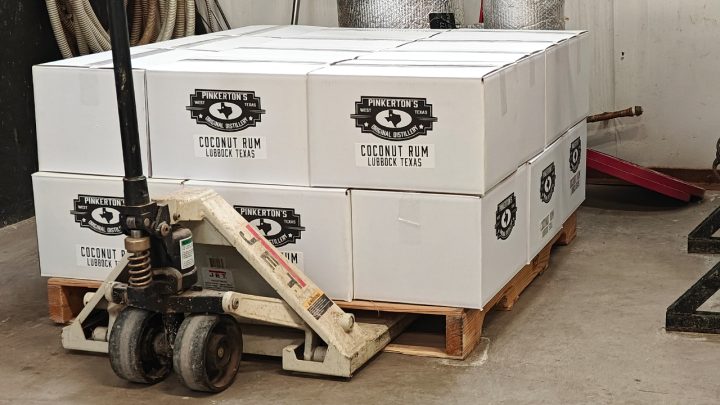
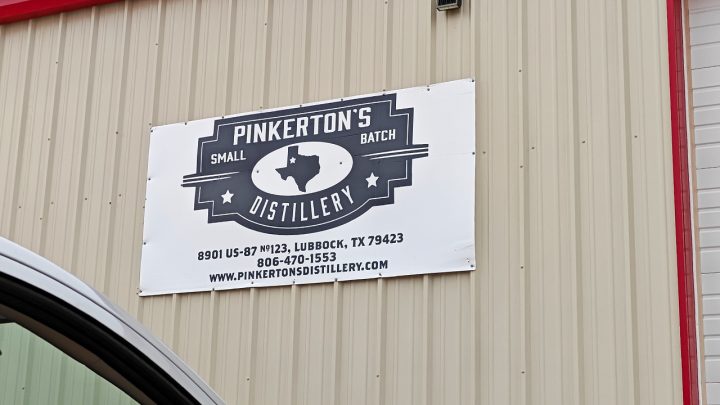
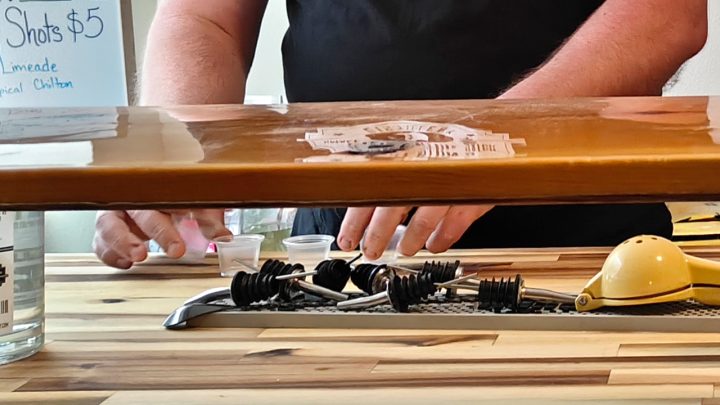
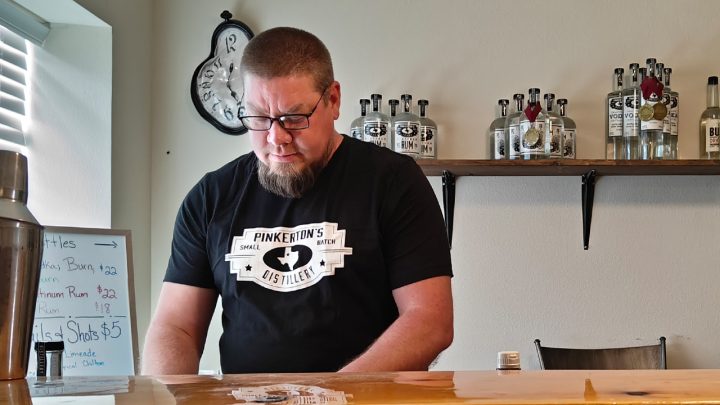
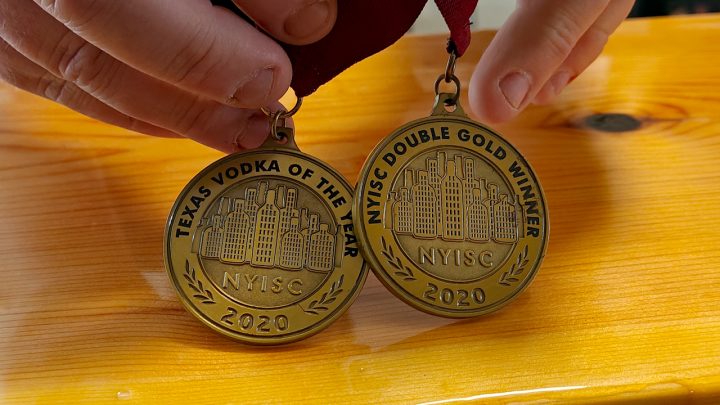
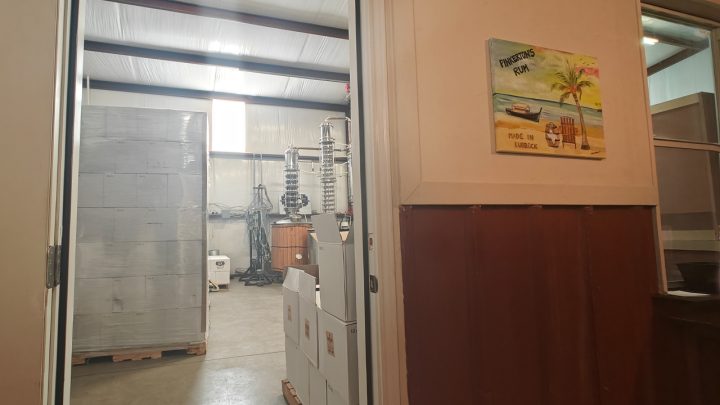
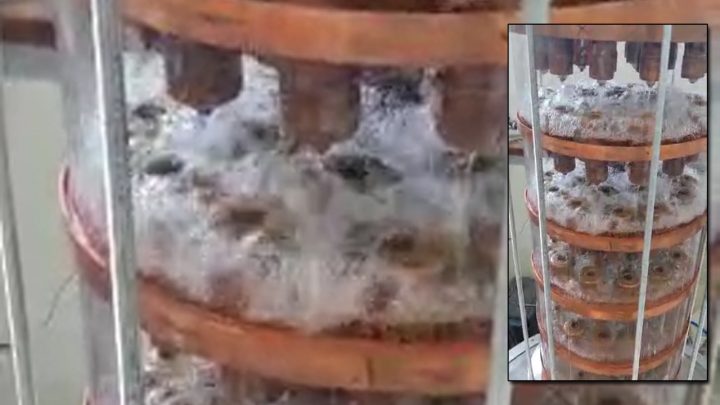
 Facebook
Facebook